Sun Poisoning Symptoms: How To Spot And Treat Them?
A lot of the time, we take preventive measures for sunburn which probably explains why sun poisoning is less talked about and difficult to differentiate. Not to alarm but that itchy red skin is more serious than you think.
On Mar 28, 2023 – 10 minutes read
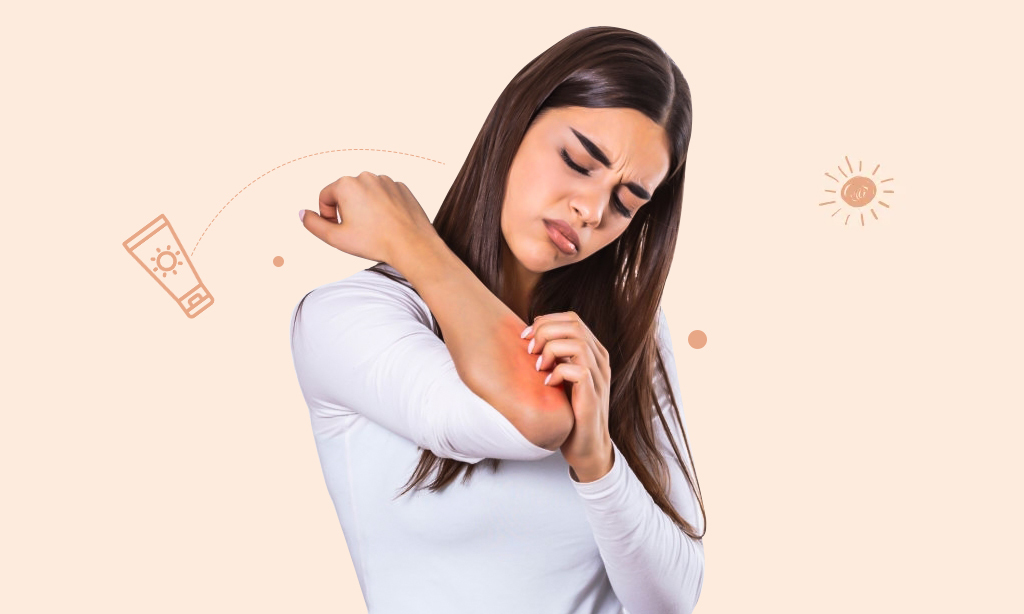
Never heard of sun poisoning before? Then, you need to look out for these sun poisoning symptoms.
Sun poisoning is a genuine concern, regardless of your beliefs. Spending excessive time basking in the sun outdoors on a sunny day exposes you to various risks.
Dehydration? Guaranteed. Heatstroke? Possibly. Sunburn? Promised. Sun poisoning? Definitely.
Yes, sun rays are an instant mood lifter. Everyone loves a dose or two of vitamin D every day, especially if you are constantly bombarded with moody weather conditions. But you cannot ignore the persistent peril of sun poisoning.
Regardless of your skin tones, you must learn about sun poisoning symptoms, treatment, and prevention tips to save your skin from the potential hazard of sun rays. Whether you have fair skin or dusky skin, here’s everything you need to know about sun poisoning.
Sun Poisoning: Causes, Symptoms, Treatment, And Prevention Tips
Too much of anything is good for nothing. It’s the same case for sun rays, too. The other side of the coin of feeling sun rays bouncing off your skin is the damaging effects of too much sun on your skin. Even if you wear an SPF of 30+.

Here’s a common situation: you spend time in the sunlight, and you end up with sunburn, resulting in tender skin. But it doesn’t stop there – the tenderness and redness escalate into itching and painful rashes. What’s going on? This reaction to prolonged exposure to harmful UV radiation is known as sun poisoning. Keep reading to learn all about it!
What Are the Causes Of Sun Poisoning?
Let’s start with the causes of sun poisoning. Sun poisoning occurs when UV radiation inflames your skin, causing an extreme case of sunburn. Though relatively unknown and uncommon, it has a number of factors that influence a person’s likelihood to get sun poisoned while spending an extended period of time in the sun.
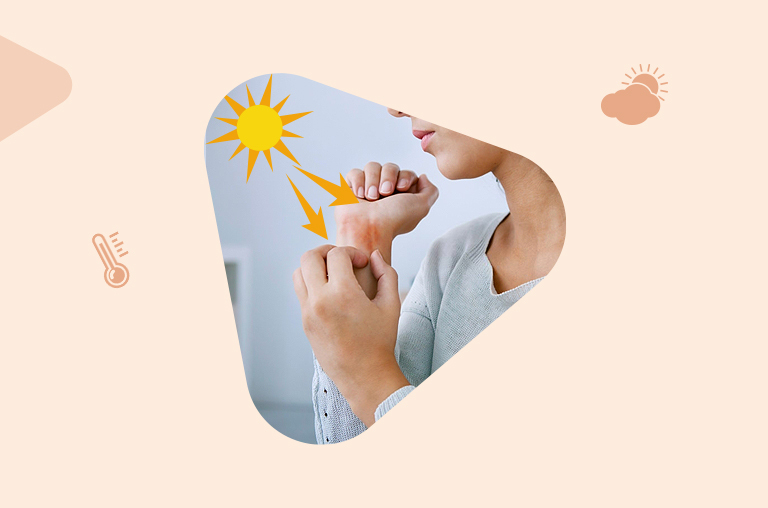
You are at an increased risk of sun poisoning if you:
- Have fair skin —particularly redheads.
- Apply citrus oils before sun exposure.
- Are using alpha hydroxy acids (AHAs) —chemical peels.
- Have relatives who had skin cancer.
- Are living in places near the equator.
- Reside in high altitudes.
- Actively engage in regular snow activities during the cold season.
- Frequently visit the beach —extended exposure to reflected sunlight.
- Are taking medications such as birth control pills, antibiotics, acne medications, diuretics, OTC anti-inflammatories, OTC antihistamines, calcium channel blockers, or using herbal supplements like St. John’s wort.
- Work outdoors.
- Have pre-existing conditions such as eczema, rosacea, and lupus.
- Have dietary deficiency or genetic predisposition.
What Are the Symptoms of Sun Poisoning?
No one can claim sun poisoning as a medical diagnosis and consider it as an actual poison. The word itself, albeit misleading, is rather used in colloquial terms due to the severity of the symptoms of sun poisoning. Not to mention, some symptoms have flu-like nature or like an allergic reaction.
Without adequate sun protection or precautions, experiencing severe sunburn with systemic symptoms is serious and shouldn’t be taken lightly. Underestimating the severity of sun poisoning would be a significant mistake, considering that just 15 minutes of intense sun exposure can lead to burns. Additionally, symptoms of sun poisoning may not manifest until later, and their severity can vary from person to person.

There are two types of sun poisoning: acute and chronic. If your symptoms of sun poisoning are relatively mild and pass with treatment, you have acute sun poisoning. On the other hand, if the symptoms are severe and ongoing while a bit difficult to treat, you have chronic sun poisoning.
List of Symptoms of Sun Poisoning
- Tingling and pain
- Redness and blistering or peeling skin
- Rashes
- Hyperpigmentation
- Headache
- Swelling
- Chills and fever
- Dizziness and light-headedness
- Shortness of breath
- Fainting
- Blurred vision
- Nausea
- Dehydration
- Confusion
It’s crucial to distinguish between the symptoms of sun rash, mild sunburn, and sun poisoning. If you encounter a sun rash, also known as sun allergy, it may appear as a widespread red rash with intense itching and possibly small bumps resembling hives. However, a sun rash resulting from sun poisoning typically presents as an isolated red patch, necessitating medical attention.
In the case of mild sunburn, similar symptoms such as redness, tenderness, swelling, or pain eventually heal on their own without medical attention or complications. However, symptoms of sun poisoning can lead to other risky complications. As the skin’s barrier is practically impaired, it increases susceptibility to further damage (in the future as well). It may cause scarring, contribute to heat stroke —especially when the individual is dehydrated— or worse, increase your chances of getting skin cancer (melanoma) in the future.
Infection is also a possibility in this case. If your skin is punctured from popping blisters or scratching the burn, the chances of infection are high. Furthermore, people who experience chronic sun poisoning are at a higher risk of developing premature wrinkles and skin spots in the future.
Recovery Time for Sun Poisoning
These local or systemic symptoms mentioned above may resolve within hours, a day or two, and you feel much better after a few days. But skin damage can be long-lasting. With adequate hydration, topical care, and cooling of the skin, many symptoms can resolve within two days. But if it is widespread, it may take up to 10 days to heal —for the skin to shine and replenish. If you have rashes or blisters, resist the urge to scratch yourself.

An essential consideration is to reduce further sun exposure while recovering from sun poisoning, as the skin’s ability to regulate temperature may be compromised. Therefore, it’s advisable to keep the skin moisturized during the healing process to reduce discoloration, scarring, and pigmentary disturbances, while also promoting faster recovery.
Sun Poisoning vs Sunburn
Since sunburn and sun poisoning look similar and share a few symptoms, it may be difficult to distinguish the two. And when that happens, the symptoms of sun poisoning go unnoticed, leading to dangerous skin conditions or long-term complications. So, it is important to know the difference between the two.

Sunburn includes symptoms such as redness, itchy, and begins to peel after some time but these mild symptoms usually fade after a while. In some extreme cases, it accompanies fever and nausea. It can happen to anyone who is exposed to sunlight for too long. On the other hand, sun poisoning does not affect everyone. In fact, some are more susceptible than others. Its symptoms are severe, last longer, and require medical treatment.
How To Treat Sun Poisoning?
Sometimes referred to as photodermatitis or polymorphic light eruption, sun poisoning comes in different forms based on your skin’s sensitivity to the sun. But unlike sunburn, it requires medical treatment. Protocol for treating sun poisoning is different, depending on the severity of the burn.
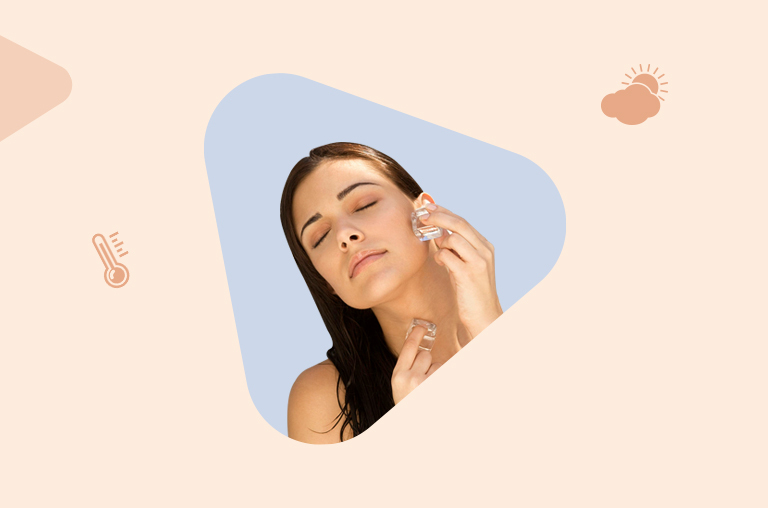
If you ever find yourself with a severe case of sunburn, here’s how you should treat sun poisoning:
- Hydrate by drinking fluids for a few days to replenish moisture lost from the skin.
- After being in the sun, drink electrolytes and intravenous (IV) fluids to treat dehydration.
- If the pain persists, take non-steroidal anti-inflammatory drugs like OTC pain relievers ibuprofen or acetaminophen —if you are not allergic. This will soothe redness and swelling due to inflammation.
- Apply cold compresses for 30 to 60 minutes. You can make an equal ratio of milk and water, diluted water with apple cider vinegar, milk, baking soda, and Burow’s solution to help soothe the skin.
- Apply a ziplock filled with ice cubes for 5 to 10 minutes.
- If you don’t have open blisters, apply natural soothing agents such as aloe vera extracts, moisturizers (fragrance-free), gels, or coconut oil to relieve pain as well as itching.
- Use an anti-itch cream to protect your already burnt skin from further damage. Your doctor may prescribe an antibiotic if your itching worsens.
- For inflamed blisters, apply OTC hydrocortisone 1% cream for post-shower application (when the skin dry). Or an emollient petrolatum ointment or Doctor Rogers Restore with glycerin and castor bean oil for acute sun poisoning.
- Apply clean and damp dressing on open wounds or erupted blisters to heal and reduce the risk of infection as well.
- Use steroid creams for painful blisters.
- Apply lotion to your skin while still damp to retain moisture on peeling skin.
- Crush a baby aspirin and spread it as a paste on the skin for some local anti-inflammatory effect.
- Shower in cool (not cold) water.
- Use a gentle cleanser like the Dove White Beauty Bar while showering.
- Avoid scented body lotions, oils, bath salts, and perfumes to protect your burnt skin.
- Cover sun poisoned areas when going out in the sun.
- Apply topical antibiotics to prevent infection.
- Opt for phototherapy or light therapy by exposing certain wavelengths of light on the skin to slow the growth of damaged cells.
When to See a Doctor
When treated promptly, even sun poisoning will eventually heal. Here’s a heads-up: in severe cases, hospitals may transfer individuals with sun poisoning to the burn unit. If you experience any of the symptoms listed below, seek medical attention immediately:

- Fever and chills
- Upset stomach
- Headache
- Confusion
- Fainting
- Severe dehydration
- Facial swelling
- Painful blisters covering large portions of your body
- Severe infection (has spread to your bloodstream) with oozing or red streaks
Prevention Tips for Sun Poisoning
It is easy to get sun poisoned. But to prevent sun poisoning, you just need to follow some standard precautions and sun safety tips.

Here are a few of them for you to follow and keep your skin safe in coming relaxing summer days:
- Wear sunscreen with an SPF of at least 30 and mention “broad spectrum” on the label. Apply all over your exposed skin 30 minutes before leaving the home. Use a shot-glass-sized amount of sunscreen on the body and a tea-spoon amount on your face and neck. Don’t forget sneaky places like the back of the ears and scalp.
- Reapply sunscreen every two hours or right after swimming or sweating.
- Wear UV protective sunglasses with protective clothing, such as hats, long sleeve clothes, gloves, and neck gaiters. Tight woven fabrics, thick, or dark clothes can further help you.
- Avoid peak hours in the summer months.
- Limit your exposure from the hours between 10 AM and 2 PM. Keep in mind that water, snow, and sand can intensify the sun’s harmful UV rays.
- Check on your medications to ensure you don’t take any medications that make your skin more sensitive to the sun. Some of them are acne medications (retinoids), antidepressants (doxepin and tricyclic), antibiotics (ofloxacin, tetracycline, doxycycline), antifungal treatments (griseofulvin), antihistamines (promethazine, diphenhydramine), diuretics, heart drugs, and birth control pills.
- Dietary changes with all essential vitamins, minerals, and nutrients can reduce the risk of photosensitivity.
- Avoid prolonged exposure to intense sun rays and stay in the shade whenever possible.
- Avoid tanning beds.
- Stay hydrated while in the sun.
- Keep infants younger than 6 months out of intense and direct sunlight.
Fair Skinned or Dark Skinned
We have established that fair-skinned people are more prone to sun poisoning. Those who live in northern climates with fair skin may not be used to intense sunlight. For them, the chance of getting a skin reaction called Polymorphous Light Eruption (PMLE) is high.
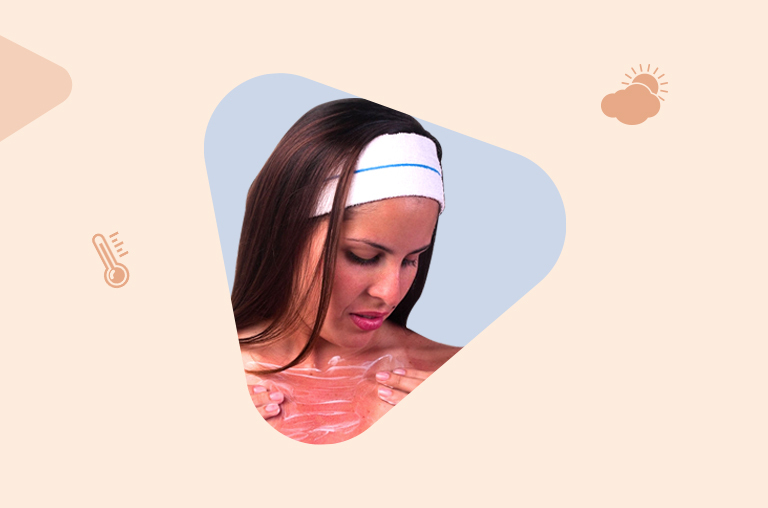
When it comes to the other side of the spectrum, people have doubts regarding dark-skinned people and sun poisoning. Can people with darker skin get sun poisoning? Of course, yes. But they are less at risk than people with light skin. Because for people with lighter skin, their protective pigment in the skin —melanin— is less than those with darker skin.
Sunscreen is the Solid Remedy
Even if you wear thin cloth to cover your face, wearing sunscreen is necessary. There are only two golden rules to remember here: apply sunscreen 30 minutes before you go outside and reapply it every two hours. Applying it before half an hour gives the skin enough time to soak up the sunscreen for better protection.

Some might presume that there is no need to wear sunscreen if you wear a face mask. But sunlight can easily get through paper face masks. So do not leave home without wearing an SPF of at least 15.
Final Thoughts
Now that going out feels like a blessing in itself, none of us would want to miss the opportunity to soak up some sun. However, sun rays can still harm the skin during and after lockdowns. Therefore, it’s essential to follow prevention tips for sun poisoning to avoid getting burned and to treat it properly to prevent further damage. I hope this article on sun poisoning symptoms and treatment assists you with a condition nobody wants to experience, just in case! Remember, keep your skin protected from the sun’s rays at all times!

Subscribe to Newsletter
Elevate your routine, stay on trend, and embrace a personalized beauty journey with our curated insights.


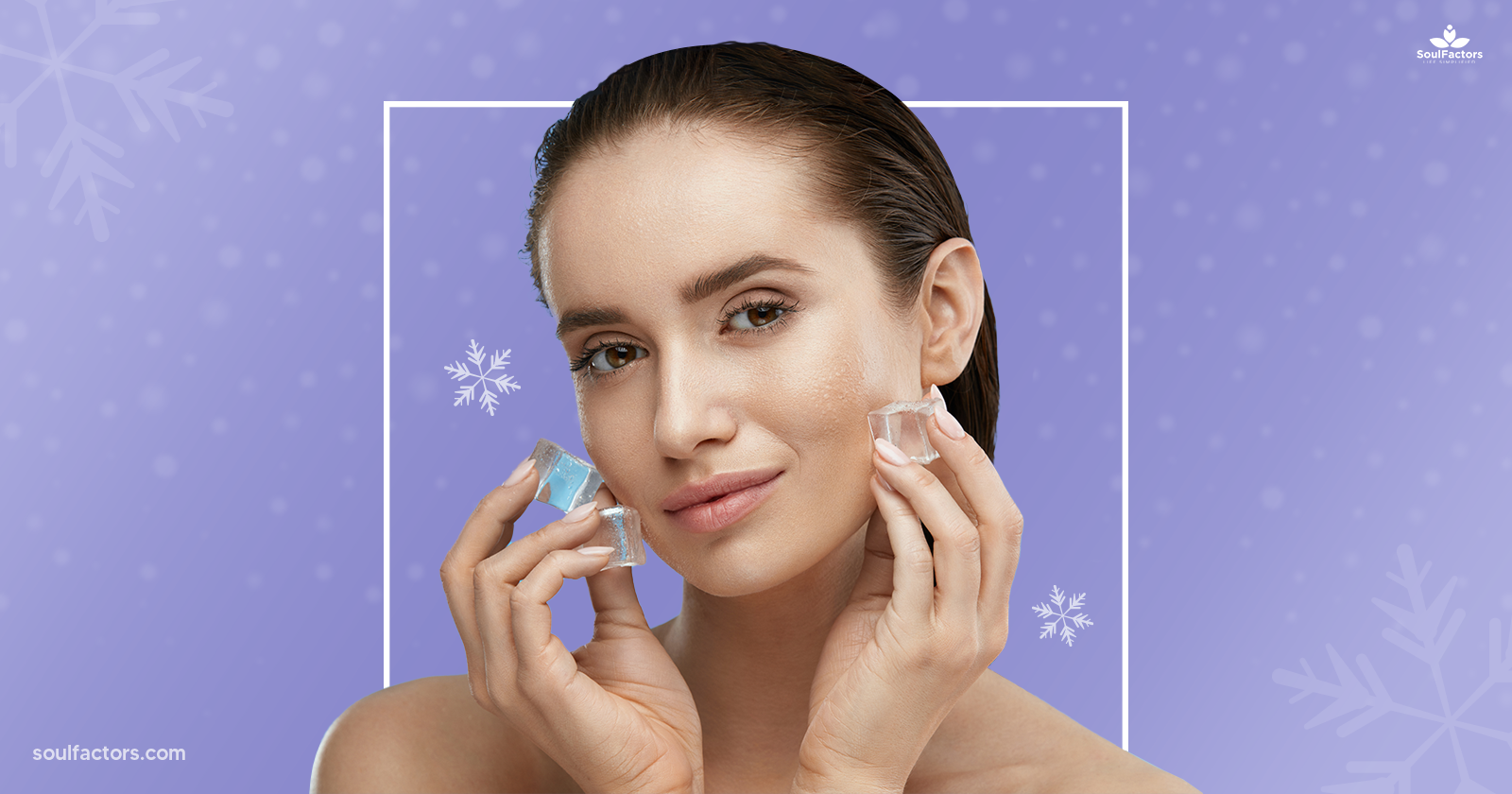
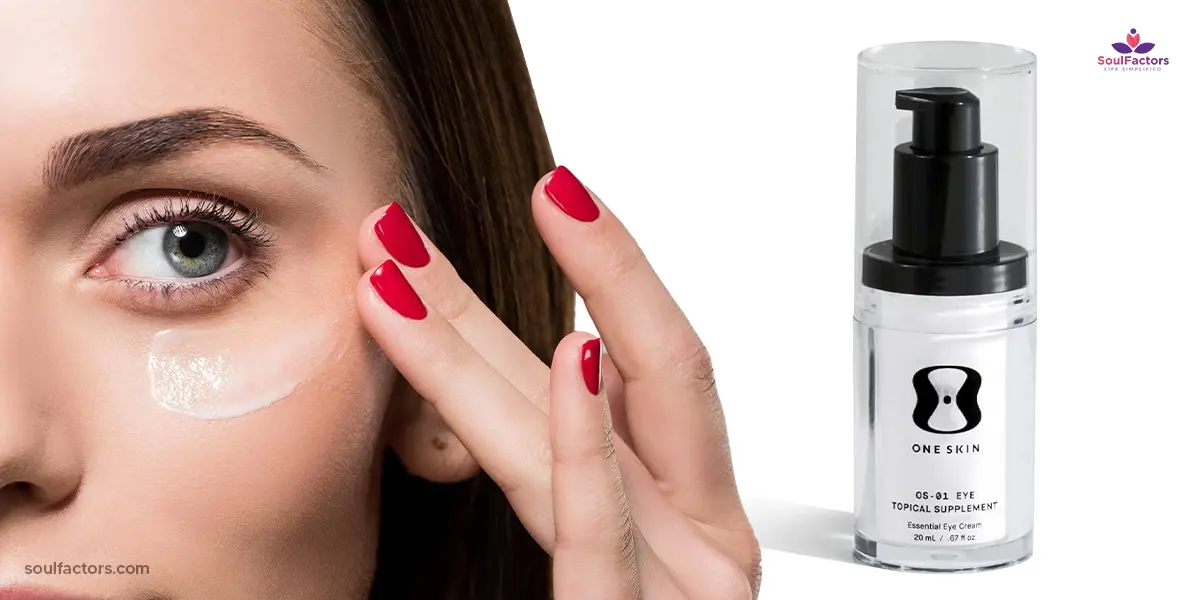
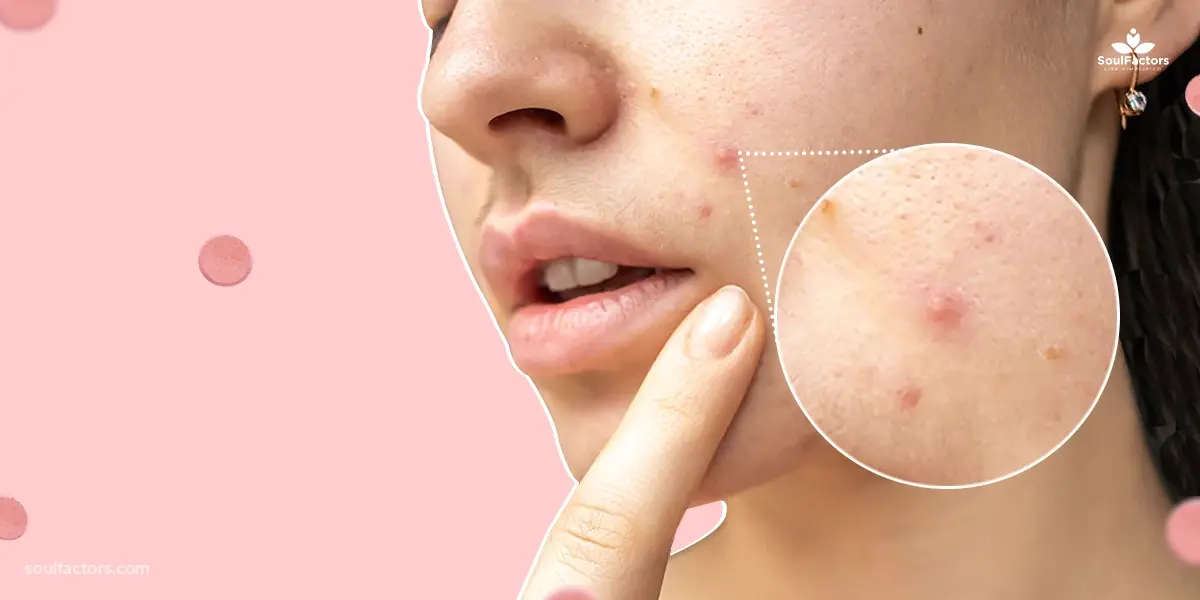
Write a Comment